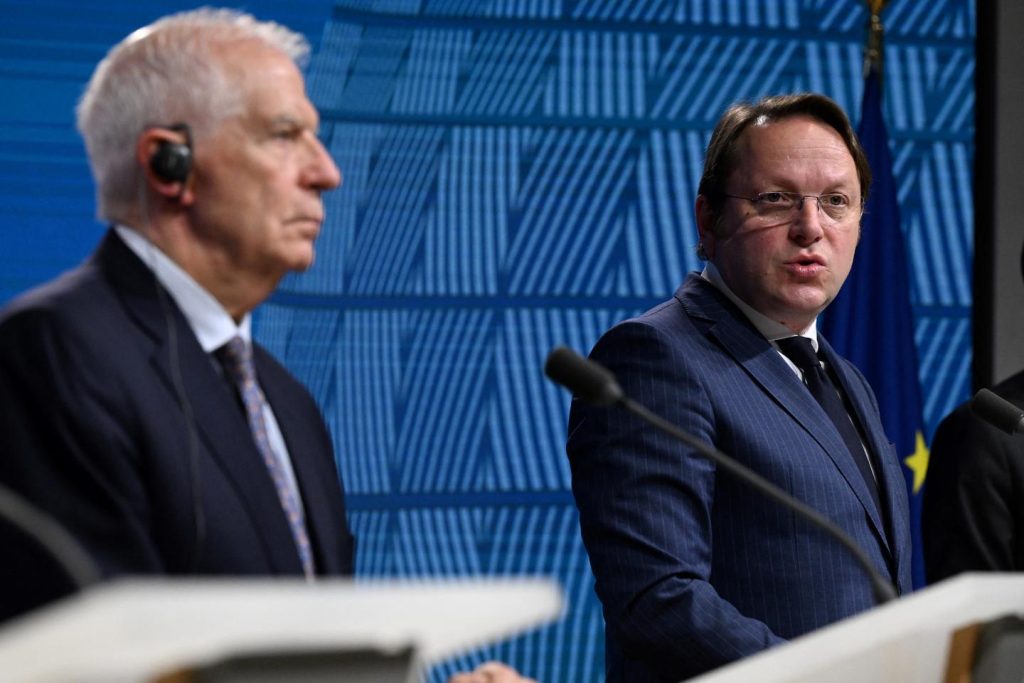The European Commissioner for Neighborhood and Enlargement, Oliver Varhelyi, and the High Representative of the European Union for Foreign Affairs and Security Policy, Josep Borrell, held a press conference with the Prime Minister of Ukraine after a meeting of the EU-Ukraine Association Council at the EU headquarters in Brussels on March 20, 2024. With the war in Ukraine continuing at the borders of the Union, the election of Donald Trump as President of the United States, and the European economy facing a downturn, the European institutions have been functioning slowly for the past six months. Following the European elections on June 9, the Commission was supposed to be up and running by December 1. However, the appointment of commissioners has caused divisions within the European Parliament, with the far-right lurking, the German election campaign also affecting the debate, and the process potentially being delayed further.
A significant step was taken in July when Members of the European Parliament confirmed Ursula von der Leyen’s reappointment as President of the European Commission. This appointment validated the parliamentary majority that the German can theoretically rely on, consisting of the center-right European People’s Party (EPP), the center-left Socialists and Democrats (S&D), and the Liberals from Renew. These political allies must now approve each of the commissioners who will surround Ursula von der Leyen before voting on the entire college. Last week, the European Parliament confirmed 19 of them, but the remaining seven have caused a deadlock among the three groups that make up the “von der Leyen majority”.
If an agreement is not reached in the coming days, the vote in Strasbourg on the entire college will not take place on November 27 as planned, and the start of the Commission’s term will be delayed. Among the seven commissioners awaiting approval, three are particularly problematic – Hungarian Oliver Varhelyi, nominated for Health and Animal Welfare, Spanish Teresa Ribera for Ecological Transition and Competition, and Italian Raffaele Fitto for Cohesion. The fate of the others, including Frenchman Stéphane Séjourné for Industrial Strategy, will not be resolved until a compromise is reached for each of them.
The impasse in the approval of the remaining commissioners has raised concerns about the delay in the functioning of the new European Commission and its impact on the global stage. The credibility and effectiveness of the European Union are at stake, especially in light of ongoing international crises. The pressure is on the political leaders involved to find a solution and reach an agreement quickly to ensure the smooth transition and operation of the European institutions.
Amidst the challenges facing the European institutions, issues such as the conflict in Ukraine, the presidency of Donald Trump, and the economic situation in Europe remain pressing concerns that need to be addressed. The uncertainty surrounding the completion of the Commission lineup and the potential delay in its inauguration highlight the complexities of the political landscape within the EU. It is crucial for the European Parliament and Commission to navigate these challenges efficiently and effectively to uphold the Union’s values and responsibilities on the international stage.
As discussions and negotiations continue to resolve the deadlock on the remaining commissioners’ approval, the future of the European Commission and its ability to address pressing issues at a time of global uncertainty remain uncertain. The collaboration and consensus-building among political groups will be essential in overcoming the current impasse and ensuring the smooth functioning of the EU institutions. The outcome of this political process will have significant implications for the Union’s role in addressing critical issues such as the war in Ukraine, transatlantic relations, and economic stability, emphasizing the importance of effective leadership and cooperation within the EU.


